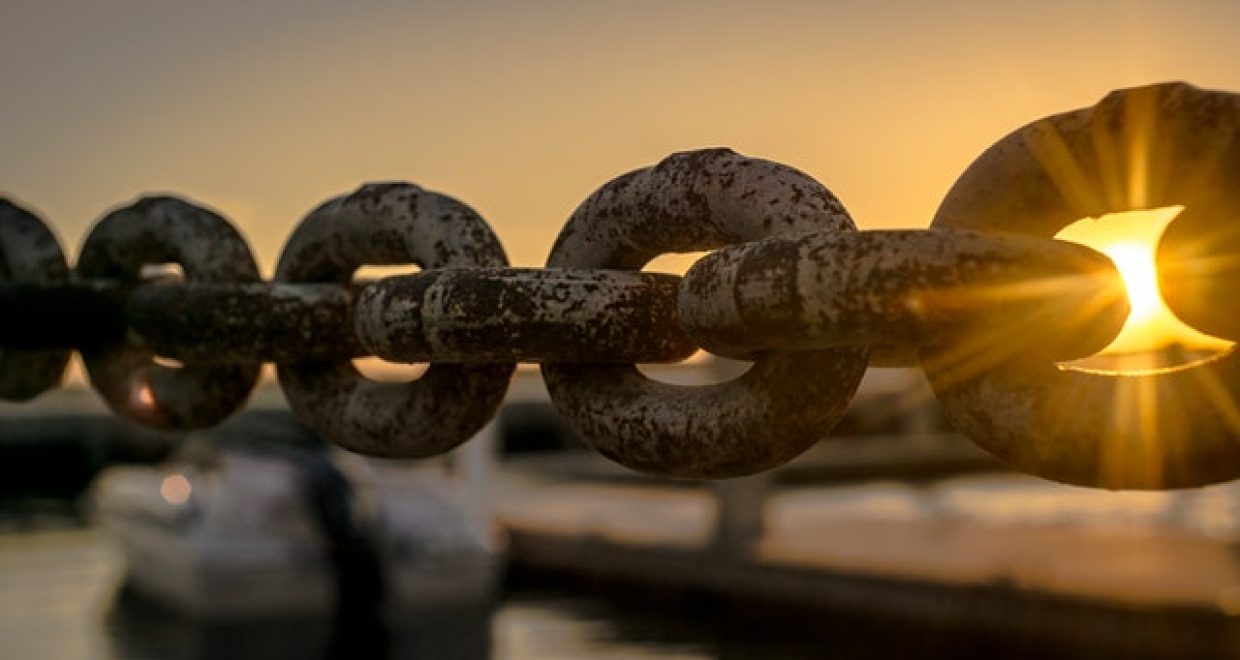The European Commission publishes a study on due diligence requirements through the supply chain
The past years have seen a growing interest in the role of businesses in the protection of human rights and the environment. The European Commission Action Plan on Financing Sustainable Growth of March 2018[1] was notably provided to assess “the possible need to require corporate boards to develop and disclose a sustainability strategy, including appropriate due diligence throughout the supply chain”. The European Parliament Report on Sustainable Finance of May 2018[2] further called for a “legislative proposal” for “an overarching, mandatory due diligence framework including a duty of care” at EU level.
This provided the basis for a “Study on due diligence requirements through the supply chain” led by the British Institute of International and Comparative Law, Civic Consulting and LSE Consulting for the European Commission[3]; focusing on due diligence through the supply chain to identify, prevent, mitigate and account for human rights abuses and environmental damage, published in February 2020 (the “Final Report”). Following research, country analyses, interviews and surveys, it identifies several regulatory proposals at EU level.
There is currently no general duty at EU level requiring companies to undertake due diligence for human rights and environmental impacts caused by their supply chain. Several national measures address supply chain due diligence but are specific to certain sectors or issues. For example, the UK Modern Slavery Act of 2015 provides for reporting on due diligence for modern slavery, and the Dutch Child Labour Due Diligence Act of 2019 provides for due diligence for child labour. Other legislative initiatives are being studied nationally, in Germany for example, and sector-specific regulations relating to due diligence also exist at EU level, e.g. the EU Timber Regulation,[4] or the EU Non-Financial Reporting Directive.[5]
Presentation of EU regulatory options
The Final Report assesses four options with respect to economic and social impacts, impacts on EU public authorities, on human rights and on the environment. Only the latter two will be presented below:
- Option 1, “no change” in regulation on undertaking due diligence through the supply chain, maintaining the status-quo of mixed legal obligations and soft law.
The impact of Option 1 would depend on the companies’ willingness to undertake due diligence. Companies have shown willingness to take human rights into account, but environmental risks are often only implicitly covered. This option would neither respond to the legal uncertainty of multiple standards nor would it enhance accountability.
- Option 2, “new voluntary guidelines” on undertaking due diligence through the supply chain, considering that guidelines are not usually legally enforceable, but may influence standards in legal claims.
Guidelines could raise awareness and accountability with respect to human rights; but lack enforcement mechanisms and depend on company willingness. Respondents overall indicated that this option is unlikely to have environmental impacts, and that “there is already enough voluntary guidance in existence”, seeming “unconvinced that new voluntary guidance would have notable social, environmental and human rights impacts”.[6]
- Option 3, “new regulation requiring due diligence reporting” on steps taken to identify, prevent and mitigate human rights and environmental impacts in company operations or business relationships. This would not per se represent a substantive due diligence standard. Enforcement would rather relate to the frequency or content of reporting.
Whilst this could raise awareness and accountability, companies could perceive reporting as a procedural rather than substantive activity, and monitoring disclosure is challenging. Perceived shortcomings are that “reporting requirements do not usually provide for effective sanctions for non-compliance”.[7]
- Option 4, “new regulation requiring mandatory due diligence as a legal duty of care”, to identify, prevent, mitigate and account for human rights and environmental impacts in the company’s operations or business relationships. This carries several sub-options, based on the types of companies or sectors to which it would apply and enforcement mechanisms. It would be a substantive legal duty to meet a standard of care rather than a procedural requirement. A company would not defend itself by simply “ticking the boxes” but could demonstrate in its defence that it undertook the required level of due diligence to meet the standard.
This is expected to have the most significant impact for human rights and the environment, with the strongest benefits for right-holders; in other words, “mandatory due diligence allows for significant preventative benefits that reporting requirements fail to capture because of their retrospective nature”.[8] It could enhance accountability and access to justice, even if enforcing compliance remains a challenge. Most stakeholders considered that it “may provide potential benefits to business relating to harmonization, legal certainty, a level playing field and increasing leverage in their business relationships throughout the supply chain through a non-negotiable standard”[9]; and were in favour of the introduction of a general standard at EU level, with an overall preference for cross-sectoral regulation.
When comparing Options 2 and 3, the former is foreseen as most effective. Hence “the conclusion would thus be for regulation to either remain at voluntary guidelines level, or to fully implement mandatory due diligence”.[10]
Monitoring and enforcement of Option 4: comparative analysis
One of the main issues regarding mandatory due diligence relates to oversight and enforcement mechanisms. The Final Report includes a Sub-option 4.3 adding statutory oversight and enforcement mechanisms to this scenario, either through judicial or non-judicial remedies (Sub-option 4.3(a)), or through oversight administrative bodies with sanction power at EU or State level (Sub-option 4.3(b)).
The Final Report shows that there are two key precedents in Europe: France and the Netherlands.
French law of March 2017 (the “Duty of Vigilance Law”) requires companies above determined thresholds of employees to implement a “vigilance plan” with “reasonable vigilance measures” to identify risks and prevent serious impacts on human rights and the environment resulting from the activities of the company, of the companies it controls, and of subcontractors/suppliers with whom the company has an “established business relationship”, when these activities are related to this relationship. There is no requirement for the company to operate in a certain sector or industry for the Law to apply. To enforce this law, French Parliament has opted for judicial oversight by allowing persons whose interests have been affected to bring two types of claims before civil courts. The first is aimed at obtaining an order from civil courts to force the company to set up an effective vigilance plan.[11] The second is aimed at obtaining remedies based on civil liability.[12] This mechanism puts the onus on victims and civil society to ensure the enforcement of the Law by bringing actions before courts.
The Netherlands has taken a different approach in the Child Labour Due Diligence Act of 2019, for which oversight power has been given to a public supervisor to issue orders. If the company does not comply with the order, the public supervisor can impose an administrative fine. This approach is similar to the anti-corruption mechanism set up in France by French Law of December 2016 (the “Sapin 2 Law”), which created the national French Anticorruption Agency (“AFA”). This body was granted power to issue guidelines and recommendations, as well as sanctions powers against non-compliant companies and directors.
The Dutch Child Labour Due Diligence Act has not yet been enforced. In France, administrative oversight in anti-corruption compliance has proved more effective than judicial oversight under the Duty of Vigilance Law.
The AFA has been active in creating a comprehensive body of guidelines and framework for companies to follow when implementing internal rules and procedures to combat corruption. It had also undertaken 50 controls on companies out of its own initiative (without counting controls following judicial proceedings) between late 2017 and 2018.[13] The official numbers for 2019 are yet to be published, but are presumably comparable if not higher, and two final decisions have been rendered by the AFA’s sanctions commission to this day.
Implementation of the Duty of Vigilance Law has been more difficult. Companies have been given no guidance on how to implement the Duty of Vigilance Law and only two actions have been brought to court so far. Because of judicial backlog, these actions are still at their initial stage. With judicial oversight, companies will have to wait until final judgments are rendered in order to obtain guidelines on how to implement an effective vigilance plan. For this reason, an evaluation of the implementation of the French Duty of Vigilance Law published in February 2020[14] at the request of the French Ministry of Economy and Finance recommended creating a special unit from the “central administration” to retrieve data and promote vigilance obligations through dialogue with companies. This shows the need for central supervision from a non-judicial body to enforce due diligence obligations.
Though administrative oversight could be more effective, it may not make it easy for victims to obtain remedies as fines go to States and not directly to victims, as underscored by the Final Report[15]. The French experience warrants a discussion on a hybrid solution where a central administrative body would be given the authority to supervise, control and sanction non-compliant companies whilst offering remedies to victims.
Ophelia Claude is a lawyer and founding partner of Antonin Lévy & Associés, a Paris-based law-firm specialised in white collar crime, anticorruption compliance and business & human rights. Salomé Amati is an associate at Antonin Lévy & Associés working on these matters.
[1] EU Commission, COM (2018) 97 final, Communication – Action Plan: Financing Sustainable Growth, March 8, 2018
[2] EU Parliament, 2018/2007 (INI), Report on Sustainable Finance, May 4, 2018
[3] British Institute of International and Comparative Law, Civic Consulting, LSE Consulting, Directorate-General for Justice and Consumers (EU Commission), Study on due diligence requirements through the supply chain – Final Report, published on February 20, 2020, available here.
[4] EU Regulation 995/2010 of October 20, 2014
[5] EU Directive 2014/95/EU of October 22, 2014
[6] Supra note 3, Final Report, p. 16
[7] Ibid
[8] Supra note 3, Final Report, p. 549
[9] Supra note 3, Final Report, p. 17
[10] Supra note 3, Final Report, p. 550
[11] Article L.225-102-4 of the French Code of Commerce
[12] Article L. 225-102-5 of the French Code of Commerce
[13] 6 controls out of the AFA’s own initiative in 2017 according to its Yearly Activity Report for 2017, and 43 in 2018 according to its Yearly Activity Report for 2018
[14] Conseil général de l’économie, Rapport d’évaluation de la mise en œuvre de la loi n°2017-399 du 27 mars 2017 relative au devoir de vigilance des sociétés mères et des entreprises donneuses d’ordre, published on February 24, 2020, n°2019/12/CGE/SG, available here.
[15] Supra note 3, Final Report, p. 259 and 289.






